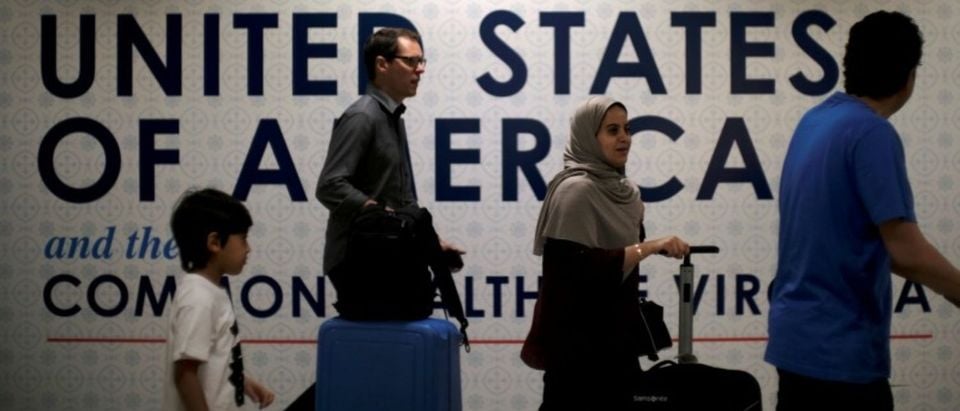The Department of Justice (DOJ) asked the U.S. Supreme Court late Monday to lift an injunction barring enforcement of President Donald Trump’s proclamation on enhanced vetting, the third iteration of his ban on refugee and migrant entry.
The request places the president’s contentious immigration policy back before the justices, who have previously signaled a preference for avoiding the issue altogether.
The president issued the proclamation in late September when the second version of the travel ban expired after a 90-day enforcement period. Federal courts in Maryland and Hawaii issued orders forbidding enforcement of key provisions of the proclamation shortly after it was issued. Those orders were partially upheld by the 9th U.S. Circuit Court of Appeals, which concluded any national from six of the eight countries named in the order with a significant connection to the United States may still enter the country.
In their new filing at the high court, DOJ argues the proclamation was the result of consultation with cabinet officers and a deliberative inter-agency process, which identified eight countries failing to meet U.S. security mandates. The argument is meant to address allegations that the proclamation was animated by anti-Muslim bigotry. The filing reads:
The proclamation differs from the president’s prior executive orders both in process and substance. It is the product of a review process undertaken by multiple cabinet officers and government officials, none of whose motives has ever been questioned. And it is based on express findings of inadequacies in the information-sharing practices, identity-management protocols, and risk factors for certain countries, as well as a presidential determination that tailored entry restrictions will both protect the nation and encourage those countries to improve.
The Department also argues the Hawaii court’s ruling relies in significant part on a 9th Circuit decision that was subsequently vacated by the Supreme Court in late October, and is therefore no longer precedential case law. They further say the lower court injunctions are “vastly overbroad.”
The justices lifted lower court orders barring enforcement of a previous version of the travel ban in late June. Though arguments were scheduled for early October in that case, the expiration of the 90-day travel ban and 120-day ban on refugee resettlement led the court to conclude the case was “moot,” warranting dismissal.
Send tips to kevin@dailycallernewsfoundation.org.
All content created by the Daily Caller News Foundation, an independent and nonpartisan newswire service, is available without charge to any legitimate news publisher that can provide a large audience. All republished articles must include our logo, our reporter’s byline and their DCNF affiliation. For any questions about our guidelines or partnering with us, please contact licensing@dailycallernewsfoundation.org.


